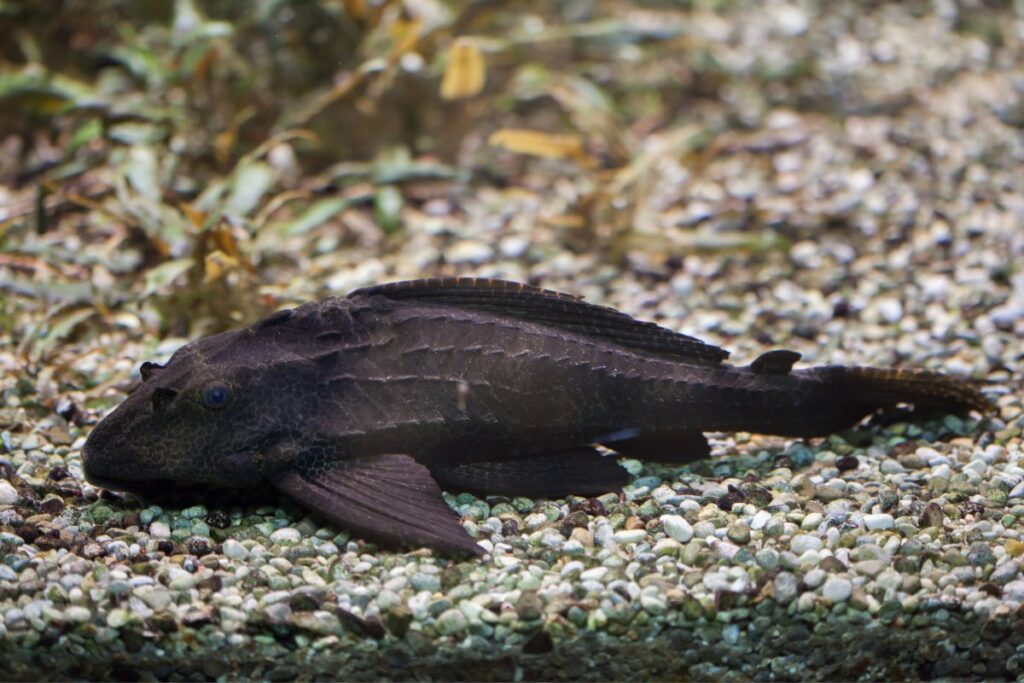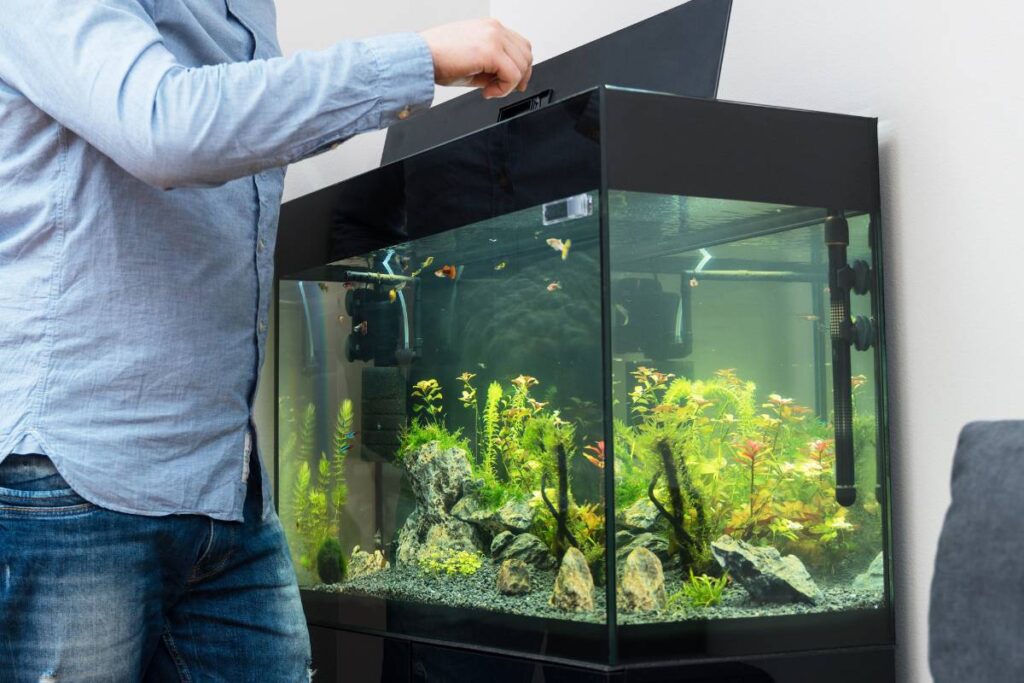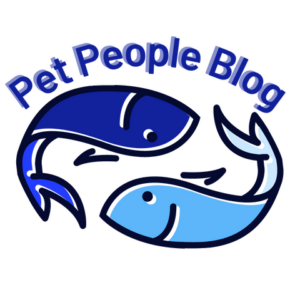If you’re a fish owner, you might have noticed your pleco looking bloated or swollen. As a pleco owner myself, I’ve experienced this issue firsthand, and I know how concerning it can be. But why is your pleco bloated, and what can you do to help?
A bloated Pleco may be a sign of overfeeding or constipation. It can also indicate internal infections or parasites. Reduce feeding and offer a varied diet with fiber-rich foods. Monitor water conditions and consult with a veterinarian or experienced aquarist if symptoms persist or worsen.
Firstly, it’s important to determine the cause of your pleco’s bloating. One common reason is overfeeding. Plecos are known to have big appetites, but giving them too much food can lead to digestive issues and bloating. Another cause could be constipation, which can be caused by a lack of fiber in their diet or by eating too much protein.
In this article, we’ll explore the various reasons why your pleco may be bloated, as well as some potential solutions. We’ll also discuss how to prevent bloating from occurring in the first place by ensuring your pleco is on a healthy and balanced diet. By the end of this article, you’ll have a better understanding of how to keep your pleco happy and healthy.

Table of Contents
Key Takeaways:
- Bloating in plecos is a common issue that can be caused by various factors such as overfeeding, constipation, poor water quality, and diseases.
- Signs and symptoms of bloating in plecos include swelling in the abdominal area, loss of appetite, reduced activity levels, and constipation.
- Treatment for bloating in plecos includes dietary changes, medication, and seeking veterinary care if necessary.
- Prevention of bloating in plecos includes proper feeding and water maintenance.
- A balanced diet that includes both plant-based and protein-based foods, avoiding overfeeding, and feeding blanched vegetables can prevent bloating in plecos.
- Regular water changes, using a good quality water conditioner, and avoiding overfeeding can help maintain good water quality and prevent bloating in plecos.
What Causes Bloating in Plecos
| Cause | Description |
|---|---|
| Overfeeding | Giving too much food can lead to indigestion, constipation, and bloating |
| Constipation | Difficulty passing waste due to a diet that is high in protein or low in fiber |
| Poor Water Quality | High levels of ammonia, nitrite, and nitrate can cause stress and lead to digestive problems, including bloating |
| Disease or Infection | Bloating can be a symptom of a disease or infection in plecos |
As a fish enthusiast, I have experienced the frustration of seeing my pleco bloated. Bloating in plecos is a common problem that can be caused by various factors. Here are some of the most common causes:
Overfeeding
Overfeeding is one of the most common causes of bloating in plecos. It is important to feed your pleco in moderation, as overfeeding can lead to indigestion, constipation, and bloating.
Plecos are known to be voracious eaters, but it is important to limit their food intake to prevent bloating.
Constipation
Constipation is another common cause of bloating in plecos. When a pleco is constipated, it may have difficulty passing waste, leading to bloating.
This can be caused by a diet that is high in protein or low in fiber. To prevent constipation, it is important to feed your pleco a balanced diet that includes plenty of fiber.
Water Quality
Poor water quality can also contribute to bloating in plecos. High levels of ammonia, nitrite, and nitrate can cause stress and lead to digestive problems, including bloating.
It is important to maintain good water quality by performing regular water changes and using a high-quality filtration system.
Disease or Infection
Bloating can also be a symptom of a disease or infection in plecos. Some common diseases that can cause bloating include dropsy, swim bladder disease, and intestinal parasites.
If your pleco is bloated and showing other signs of illness, such as lethargy, loss of appetite, or abnormal behavior, it is important to seek veterinary care immediately.
Overall, bloating in plecos can be caused by a variety of factors, including overfeeding, constipation, poor water quality, and disease or infection.
By understanding the causes of bloating and taking steps to prevent it, you can help keep your pleco healthy and happy.
Signs and Symptoms of Bloating in Plecos
| Symptom | Description |
|---|---|
| Swelling in the Abdominal Area | Obvious swelling in the pleco’s belly |
| Loss of Appetite | Reduced or no interest in eating |
| Reduced Activity Levels | Less movement than usual |
| Constipation | Difficulty passing waste, spending more time at the bottom of the tank |
If you’re a pleco owner, you know that bloating in your fish can be a serious issue. Bloating is a common problem that can affect all types of fish, including plecos.
It’s important to be able to recognize the signs and symptoms of bloating in your pleco so that you can take action quickly to prevent further complications.
One of the most obvious signs of bloating in plecos is swelling in the abdominal area. This swelling is often accompanied by a loss of appetite and reduced activity levels. In severe cases, the pleco may also experience difficulty swimming and breathing.
Another common symptom of bloating in plecos is constipation. If your pleco is experiencing difficulty passing waste, it may become bloated as a result.
You may notice that your pleco is spending more time at the bottom of the tank, straining to pass waste.
When I first noticed that my pleco was bloated, I was worried. I noticed that his belly was swollen, and he wasn’t eating as much as he usually did.
I also noticed that he was spending more time at the bottom of the tank and wasn’t as active as he normally was. I knew that I needed to take action quickly to prevent further complications.
If you notice any of these signs or symptoms in your pleco, it’s important to take action quickly. Bloating can be a serious problem that can lead to further complications if left untreated.
By recognizing the signs and symptoms of bloating in your pleco, you can take action quickly to prevent further complications and ensure that your fish stays healthy and happy.
How to Treat Bloating in Plecos
| Treatment | Description |
|---|---|
| Dietary Changes | Reduce the amount of food given, switch to a high-fiber diet, and feed blanched vegetables |
| Medication | Use over-the-counter medication that contains Simethicone or Docusate Sodium or add Epsom salt to the tank |
| Seek Veterinary Care | If bloating persists or worsens, seek veterinary care |
Dietary Changes
If you suspect that your pleco is bloated due to overeating, then you can try changing its diet. Reduce the amount of food you give it and switch to a high-fiber diet.
Vegetables such as zucchini, cucumber, and spinach are great options. You can also try feeding your pleco less often, perhaps every other day instead of daily.
Medication or Treatment
If dietary changes do not help, you can try medication or treatment. There are several over-the-counter medications available that can help with bloating in plecos.
Look for products that contain Simethicone or Docusate Sodium, which help break down gas bubbles in the digestive system. You can also try adding Epsom salt to the tank, which can help reduce bloating and constipation.
However, be sure to follow the instructions carefully and do not overdose.
Personally, when my pleco was bloated, I tried both dietary changes and medication. I reduced the amount of food I was giving him and added some vegetables to his diet.
I also added some Epsom salt to his tank and monitored him closely. After a few days, he began to improve and was back to his normal self.
Remember, bloating in plecos can be a sign of an underlying issue, so if your pleco does not improve with these treatments, it is best to consult with a veterinarian.
Preventing Bloating in Plecos
| Prevention | Description |
|---|---|
| Proper Feeding | Feed a balanced diet that includes both plant-based and protein-based foods, avoid overfeeding, and feed blanched vegetables |
| Water Maintenance | Change the water in the tank regularly, use a good quality water conditioner, and avoid overfeeding |
Proper Feeding

Feeding your pleco the right food in the right amount can prevent bloating. I learned this the hard way when I first got my pleco.
I thought I was doing it a favor by feeding it as much as it wanted, but it ended up bloating and becoming sick. Here are some tips:
- Feed your pleco a balanced diet that includes both plant-based and protein-based foods.
- Avoid overfeeding your pleco. A good rule of thumb is to feed it only what it can consume within 5 minutes.
- Consider feeding your pleco blanched vegetables like zucchini, spinach, or cucumber. These are low in protein and high in fiber, which can help prevent bloating.
Water Maintenance
Keeping the water in your pleco’s tank clean and well-maintained can also prevent bloating. Here are some tips:
- Change the water in your pleco’s tank regularly, ideally every week or two.
- Use a good quality water conditioner to remove harmful chemicals like chlorine and chloramine from the water.
- Avoid overfeeding your pleco, as uneaten food can contribute to poor water quality and bacterial growth.
By following these tips, you can help prevent bloating in your pleco and keep it healthy and happy.
Recommended products:
- Hikari Algae Wafers – These algae wafers can provide a balanced and nutritious diet for your pleco, helping to prevent bloating and digestive issues.
- API Stress Zyme Aquarium Bacteria Supplement – This bacteria supplement can help maintain a healthy and balanced environment in your pleco’s tank, reducing the risk of stress and digestive problems.
- Fluval Sea Epsom Salt – This Epsom salt can help reduce bloating and constipation in your pleco, making it a useful treatment option if your fish is experiencing digestive issues.
- Aqueon QuietFlow LED PRO Aquarium Power Filter – This power filter can help keep your aquarium water clean and clear, removing harmful toxins and pollutants that can cause stress and illness in your pleco.
- Tetra Whisper Easy to Use Air Pump – This air pump can help improve the oxygen levels in your aquarium and prevent your pleco from gasping for air at the surface, reducing the risk of stress and digestive problems.
Conclusion
After conducting research and consulting with experts, it’s clear that bloating in plecos is a common issue that can have various causes.
It’s important to monitor your pleco’s diet, water quality, and behavior to prevent bloating and other health issues.
Some common causes of bloating include overfeeding, constipation, poor water quality, and bacterial infections.
By implementing a balanced diet, maintaining a clean tank, and monitoring your pleco’s behavior, you can help prevent bloating and keep your fish healthy.
In my personal experience, I had a pleco that suffered from bloating due to overfeeding. After adjusting its diet and monitoring its behavior, the bloating subsided and my fish returned to its healthy state.
It’s important to remember that each fish is unique and may require different care, so always consult with a veterinarian or experienced fish keeper if you have any concerns.
“Learn how to keep your pleco healthy and happy with our Pleco Care 101 guide – the ultimate resource for all pleco owners!”
FAQs
Here are some frequently asked questions about bloated plecos:
Q: Can a bloated pleco recover on its own?
A: In some cases, a bloated pleco can recover on its own if the cause of the bloating was minor. However, if the bloating persists or worsens, it’s important to seek veterinary care.
Q: What can I feed my pleco to prevent bloating?
A: A healthy diet is crucial for preventing bloating in plecos. Feed your pleco a variety of foods, including algae wafers, vegetables, and small amounts of protein. Avoid overfeeding and feeding inappropriate foods, such as high-fat or high-carbohydrate foods.
Q: Can stress cause bloating in plecos?
A: Yes, stress can cause bloating in plecos. Make sure your pleco has a suitable environment with proper water quality, temperature, and hiding places. Avoid overcrowding and sudden changes in the environment.
Q: How can I tell if my pleco is constipated?
A: Signs of constipation in plecos include reduced appetite, lethargy, and a distended abdomen. If you suspect your pleco is constipated, try feeding it blanched vegetables or a small amount of unsalted canned pumpkin.
Q: Can medication help with bloating in plecos?
A: In some cases, medication may be necessary to treat bloating in plecos. However, it’s important to consult with a veterinarian before administering any medication to your pleco.
Personally, I had a pleco that became bloated after eating too much high-fat food. I switched to a healthier diet and monitored his feeding, and he made a full recovery within a few weeks.
Reference: Wikipedia.
